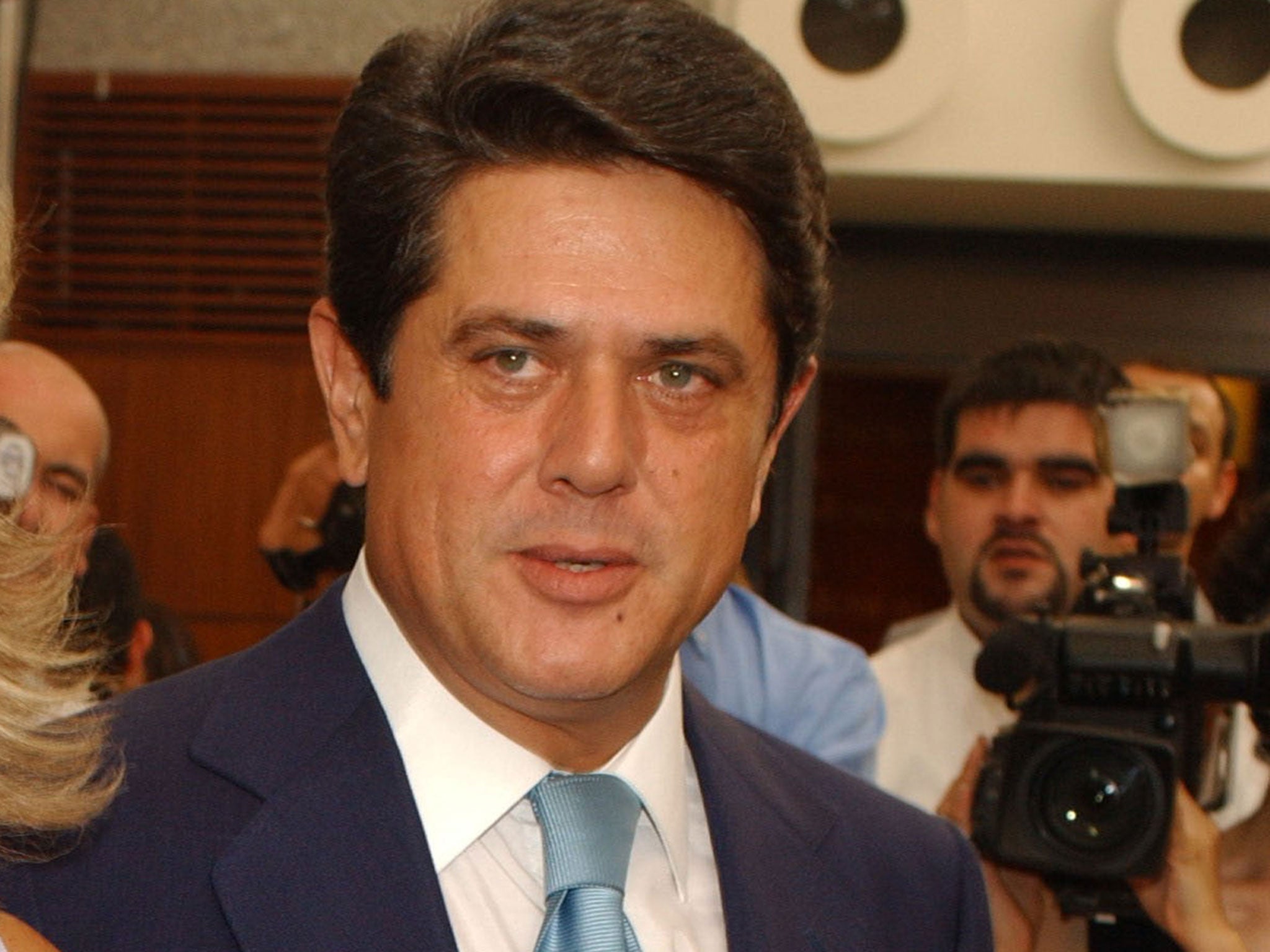Spanish Ambassador to Britain caught up in financial controversy
The company, Corporación Llorente, is under scrutiny as part of a wider investigation into how state permits were distributed to energy firms

Your support helps us to tell the story
From reproductive rights to climate change to Big Tech, The Independent is on the ground when the story is developing. Whether it's investigating the financials of Elon Musk's pro-Trump PAC or producing our latest documentary, 'The A Word', which shines a light on the American women fighting for reproductive rights, we know how important it is to parse out the facts from the messaging.
At such a critical moment in US history, we need reporters on the ground. Your donation allows us to keep sending journalists to speak to both sides of the story.
The Independent is trusted by Americans across the entire political spectrum. And unlike many other quality news outlets, we choose not to lock Americans out of our reporting and analysis with paywalls. We believe quality journalism should be available to everyone, paid for by those who can afford it.
Your support makes all the difference.Spain’s ambassador to Britain, Federico Trillo, has become the latest senior figure within the country’s governing PP party to be caught up in a scandal that polls indicate will cost it this year’s general election.
Mr Trillo, a former defence minister, has accepted that his consultancy firm received €354,560 (£254,000) over three years from a wind energy company before he became Madrid’s London envoy. The former MP argues that he received dispensation from the Spanish parliament to undertake the work when the PP was in opposition, between 2004 and 2011.
The company, Corporación Llorente, is under scrutiny as part of a wider investigation into how state permits were distributed to energy firms. The company received licenses to operate wind farms in the Castilla y León region.
According to an investigation by El Pais newspaper, auditors are believed to be looking into payments worth up to €110m made to politicians, local officials and businesses by a number firms in the energy sector. It is understood that this file has been passed on to anti-corruption investigators.
While Mr Trillo is not personally accused of any wrongdoing, the Spanish tax agency has been unable to determine if he undertook any work for Corporación Llorente, which was known as Grupo Collosa at the time the payments were made. The ambassador has retaliated by complaining that personal information has been leaked. It is “surprising and unacceptable that taxpayers’ tax data are used [in such a] manipulated and biased [way],” he told El Pais.
According to the newspaper, Mr Trillo said that while he accepted that he had received the money, he was “never put […] in charge of anything to do with public works”. The Spanish embassy in London declined to comment when approached by The Independent.
Just a month before Spain goes to the polls in regional and municipal elections, and seven months before an expected general election, the PP has been engulfed in corruption scandals. Polls suggest that Spain’s improving economy is not going to persuade voters to overlook what is becoming an ever-lengthening rap sheet involving suspect money.
Last week, Rodrigo Rato, a former PP finance minister, and deputy prime minister had his home and office raided by tax investigators as part of a probe into earnings on overseas assets. He was briefly detained overnight. This is the third legal case involving Mr Rato. He has already been charged over the collapse and subsequently state bailout of Bankia, a bank he was chairman of between 2010 and 2012.
In another case, Mr Rato and other leading figures at Bankia have been accused of benefiting from so-called “black credit cards”, which were allegedly used by executives to top up salaries. Mr Rato’s salary already ran into millions of euros. The cards, allegedly used for cash withdrawals and for items such as shoes and flowers, were not subject to income tax and did not appear on Bankia’s balance sheet.
The PP’s former treasurer, Luis Barcenas, is also under investigation, accused of running a slush fund over many years, to make secret payments to leading party figures.
Join our commenting forum
Join thought-provoking conversations, follow other Independent readers and see their replies
Comments